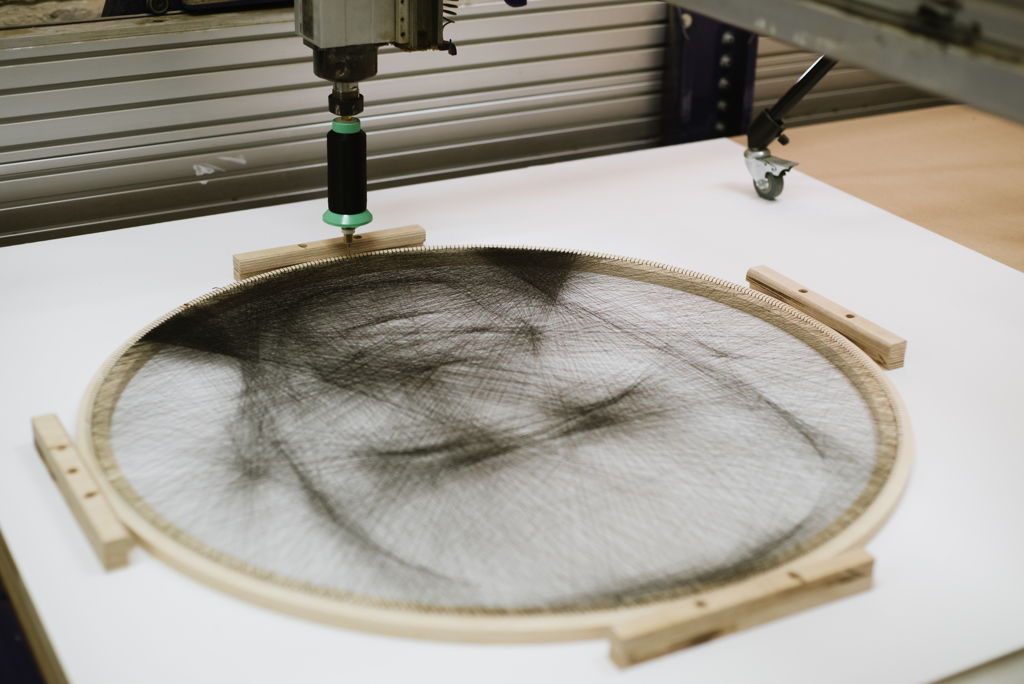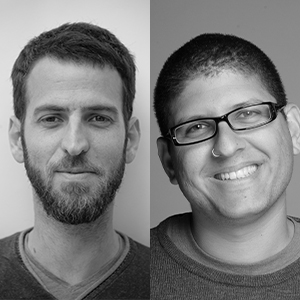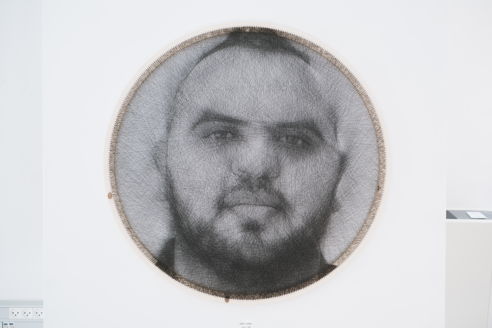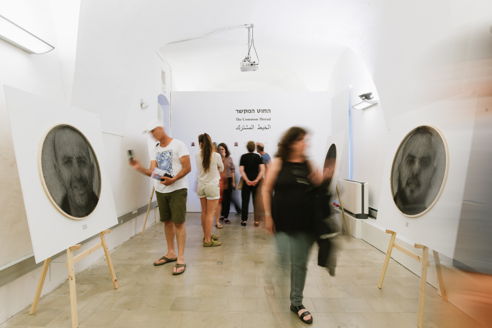 FIRST PRIZE
FIRST PRIZE
The Common Thread


Category : GENERAL
By Amir Zobel and Itay Blumenthal (Israel)
Amir Zobel and Itay Blumenthal
Amir Zobel is an Industrial designer from Jerusalem, graduate of both BA and MA degrees in industrial design from the Bezalel Academy of Arts and Design. In the past 6 years has been managing the MA Bezalel workshops and the Fab-Lab in Hansen House. In the past decade has also been active as an independent designer and multidisciplinary creator.
Itay Blumenthal is an Algorithm developer from Jerusalem, graduate of BA in Mathematics and MA in computer science from the Hebrew University, and MA in philosophy from the Tel Aviv University. For the past 7 years has been developing algorithms for Mobileye company.
We developed a high-resolution physical image fabrication method, based upon high-end image-processing algorithm and carried out by a hacked CNC milling machine. We than used this method to make a project with social and human aspects, seeking to create poetical connections between underprivileged workers and their place of work.
The project was originally made for the Jerusalem Design Week 2019, under the theme “East”. We were looking for an interesting and relevant-to-the-theme concept which will combine both our fields of expertise (algorithms, 3D fabrication) and at the same time will tell a story about Hansen House and the people of Jerusalem.
As stated above, in five main stages:
1. Gathering – First we photographed seven past and present Hansen House employees who live in eastern Jerusalem. We measured the length of the way they had to make each day from their houses to their place of work.
2. Processing – each one of the photos was then primarily and secondarily processed on the computer and into an algorithm which was written specially for the project. The algorithm deconstructed the photos and configured how one line can be drawn between 471 points on a perimeter of a circle in order to create an image as close as possible to each of the photos. The line was configured to match the distance measured from each one of the employee’s houses.
3. Coding – This resulted in a “line recipe” for each photo, which was then converted into a G-code language for the Hansen House Fab-Lab CNC milling machine.
4. Production – The CNC machine was then used to make wooden forms to stretch the threads on; the machine cut hoops and then – using special tools we developed – pinned 471 nails in equal gaps on its perimeter and bent them.
Afterwards the machine recreated each photo of each of the employees based on the code by stretching the thread between the nails. This resulted in a portrait of each one of the employees, made from a single thread the same length as the distance from their house to the machine which created the final portrait.
5. Display – The portraits were displayed in Hansen House. During the Jerusalem design week the machine has been producing a copy of one of the portraits each day. The copies were given as a gift of thanks and friendship to the participating employees.
JUDGES, COMMENTS
-
Chiaki Hayashi
Loftwork Inc. Co-founderThe Common Thread was a piece put together by an artist group living in Israel for Jerusalem Design Week. The inspiration for this work was the Hansen House, which was once used as a facility to treat those with leprosy. Now, the location serves as a media center that produces new technologies and designs. The focus of the work was on the Palestinian peoples working there. A picture of the 7 workers was fragmented using a special algorithm into 471 spherical axes, where the array of overlapping strings reveals a facial expression. The work truly embodies a “Recipe of Lines”.
There are many Arab people (also called Palestinians) living in eastern Jerusalem. One can't help but contemplate the history of conflict and compromise between the Jewish and Arab people when looking at the work.





